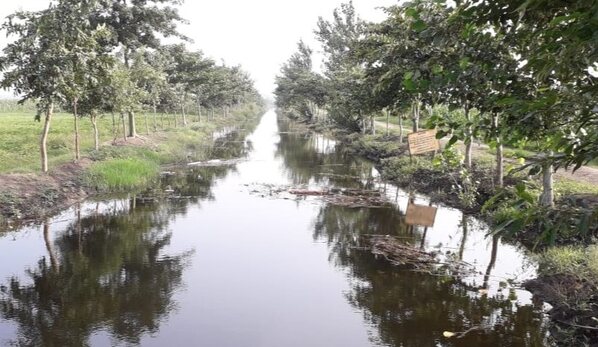

Nature at work
<p>
A new study has revealed that nature sanitises about 41.7 million ton of human waste per year before the liquid enters the groundwater — a service worth about $4.4 billion per year.</p>
<p>
The study, published in the journal &ldquo;One Earth&rdquo;, estimates that more than 2 million cubic meters of the cities&#39; human waste are processed each year without engineered infrastructure. This includes pit latrine waste that gradually filters through the soil — a natural process that cleans it before it reaches groundwater.</p>
<p>
&quot;Nature can, and does, take the role of sanitation infrastructure,&quot; said researcher Alison Parker from the Cranfield University in the UK.</p>
<p>
&quot;While we are not marginalizing the vital role of engineered infrastructure, we believe a better understanding of how engineered and natural infrastructure interact may allow adaptive design and management, reducing costs, and improving effectiveness and sustainability, and safeguard the continued existence of these areas of land,&quot; Parker added.</p>
<p>
Wastewater treatment infrastructure that converts human faeces into harmless products is an important tool for global human health. However, more than 25 per cent of the world&#39;s population did not have access to basic sanitation facilities in 2017 and another 14 per cent used toilets in which waste was disposed of onsite.</p>
<p>
While some of this waste may be hazardous to local populations, previous research has suggested that natural wetlands and mangroves, for example, provide effective treatment services. For the study, the team quantified sanitation ecosystem services in 48 cities containing about 82 million people using Excreta Flow Diagrams, which leverage a combination of in-person interviews, informal and formal observations, and direct field measurements to document how human faecal matter flows through a city or town.</p>
<p>
The researchers assessed all diagrams focusing on those coded as &quot;faecal sludge contained not emptied&quot; (FSCNE), in which the waste is contained in a pit latrine or septic tank below ground but does not pose a risk to groundwater, for example, because the water table is too deep.</p>
<p>
The team hopes that their findings will shed light on an important but often unrecognized contribution that nature makes to many people&#39;s everyday lives, inspiring the protection of ecosystems such as wetlands that protect downstream communities from wastewater pollutants.</p>
<p>
<em>(IANS)</em></p>
The Indian Army and the Mongolian Armed Forces will commence the 17th edition of their…
Pandi Ram Mandavi, a renowned artist from Bastar, Chhattisgarh, was conferred the Padma Shri award…
Taiwan's Mainland Affairs Council (MAC) criticised China on Wednesday for organising two summits for Taiwanese…
The East Turkistan Government in Exile (ETGE) vehemently denounces Mr. Francesco Frangialli, the Honorary Secretary-General…
Chairman John Moolenaar and Ranking Member Raja Krishnamoorthi of the House Select Committee on the…
Representative Thinlay Chukki from the Tibet Bureau in Geneva spearheaded a delegation's trip to Frankfurt…